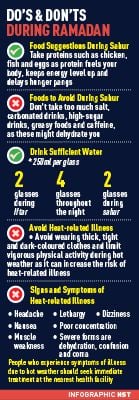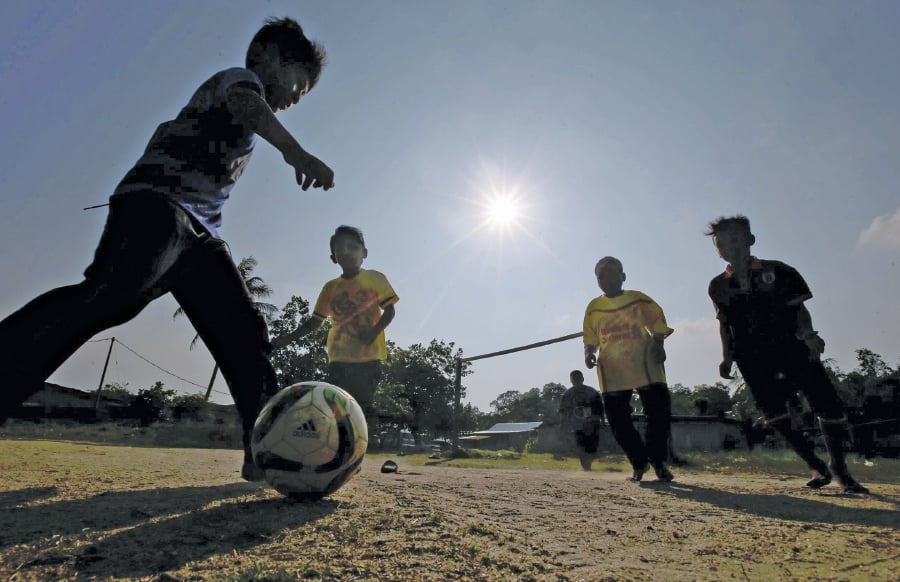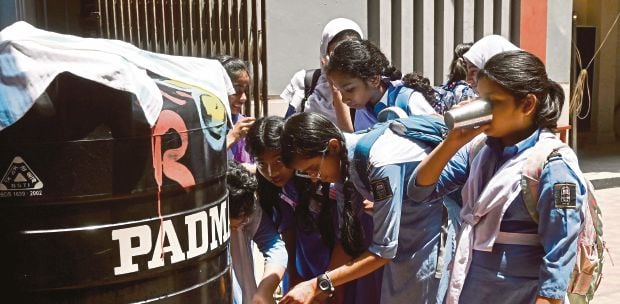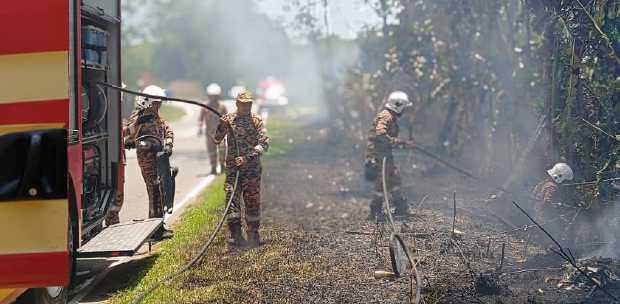Muslims should pay heed to some precautions during the hot weather in the fasting month. This is crucial to prevent health implications related to the severe heat.
Universiti Kebangsaan Malay-sia public health specialist Professor Dr Sharifa Ezat Wan Puteh said people with higher risks, such as the elderly, were prone to heat exhaustion and heat stroke.
She said those fasting should drink enough water during sahur and breaking of fast.
"Staying hydrated is crucial during fasting to prevent dehydration, which can lead to dizziness, headaches and fatigue.
"A person needs two litres of fluids a day. One should take 500ml during sahur and the 1.5 litre balance should be in small periodic intakes in the evening and at night.
"The general eight glass of water can be broken into the '2-4-2 glasses' rule; two glass of water during iftar, four glass throughout the night and two during sahur," she told the New Straits Times.
Sharifa Ezat said taking complex carbohydrates, such as whole grain bread and rice, provided sustained energy and kept people full for more hours as they took longer to digest.
"Make sure to take proteins such as chicken, fish, eggs, fruits and vegetables as protein fuels your body, keeps up energy levels and delays hunger pangs.
"Don't take too much salt, carbonated drinks, high-sugar drinks, greasy foods and caffeine as these might dehydrate you. You tend to pass urine more and easily dehydrate."
Ezat said people experiencing symptoms or signs of heat exhaustion should break their fast and drink water.
They should also have a cold shower or put cold towels in between the folds of body parts to bring down their temperature, she said.
#NSTnation #Muslims should in #Malaysia pay can take heed toof some #precautions on to handling during the hot weather while they fast. This in the #fasting month. This is crucial to prevent #health implications related to the severe heat. pic.twitter.com/DMhPIx04nt
— New Straits Times (@NST_Online) March 11, 2024
If unsure, people should seek treatment because a surge in temperature can also be caused by infection or fever.
She said heat strokes could be fatal in certain cases, and once it got close to that point, some patients might need resuscitation.
Health director-general Datuk Dr Muhammad Radzi Abu Hassan recently urged people to take preventive measures when the weather was hot, especially during Ramadan.
"People should plan activities during Ramadan and avoid the peak times of hot weather between 11am until 4pm.
"Avoid wearing thick, tight and dark-coloured clothes to help the process of losing heat from the body, and limit vigorous physical activity during hot weather as it can increase the risk of heat-related illness."
According to the MyHealth portal, signs and symptoms of heat-related health problems vary according to the case severity.
Common symptoms include headache, lethargy, poor concentration, dizziness, muscle weakness and nausea, while more severe symptoms are dehydration, confusion and coma.
Checks with the Malaysian Meteorological Department showed that heatwaves usually occurred from February to May.






